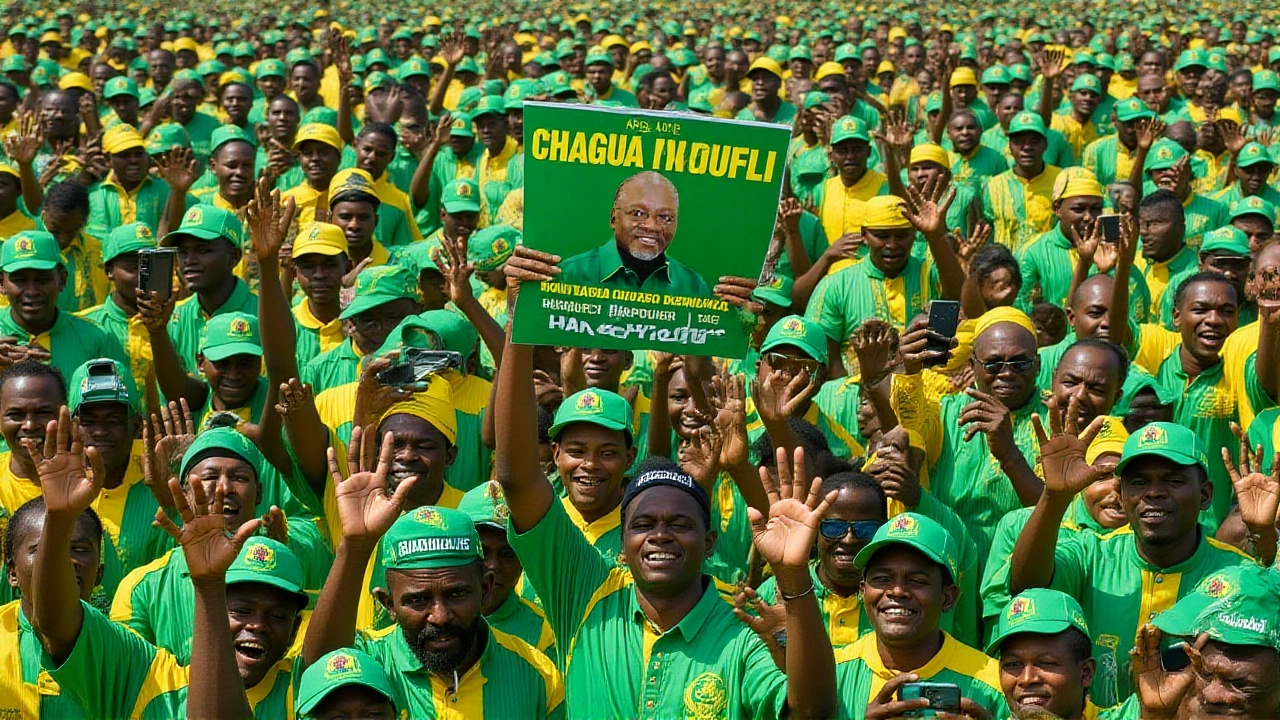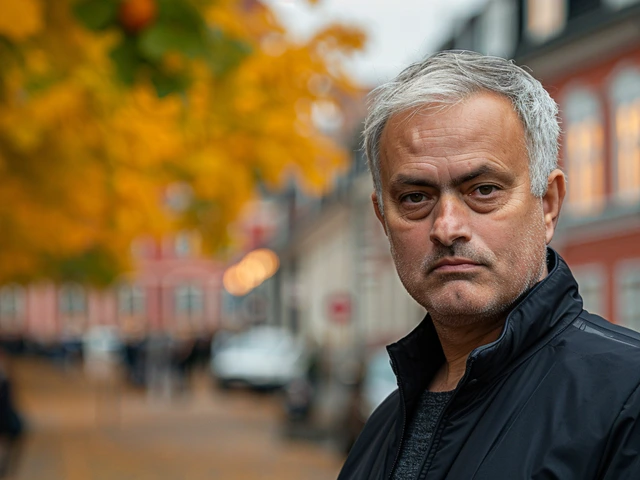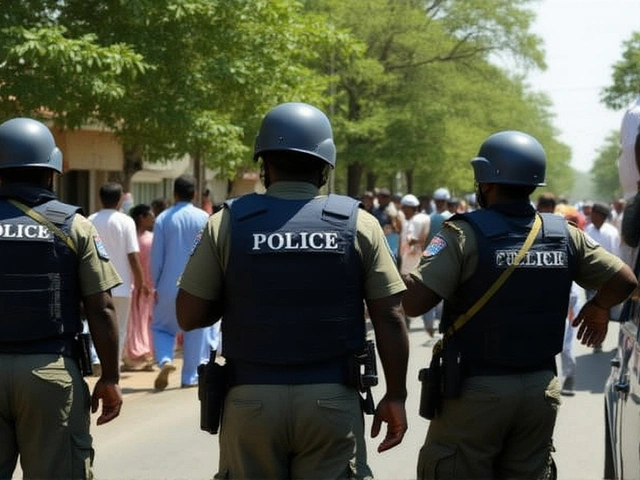Tanzania’s President Samia Suluhu Hassan Wins 97.66% of Vote in Controversial 2025 Election

When Samia Suluhu Hassan stepped onto the stage at the National Electoral Commission Results Center in Mikocheni, Dar es Salaam, on October 29, 2025, she didn’t just win — she shattered records. With National Electoral Commission of Tanzania (NEC) chair Jecha Salim Jecha announcing she had received 21,063,217 votes — 97.66% of all valid ballots — the world watched as Tanzania’s first female president secured the most lopsided victory in its modern democratic history. The vote, held across all 31 regions on October 28, 2025, saw 76.1% turnout among 28.3 million registered voters, but behind the numbers lies a story of quiet tension, suppressed dissent, and a political system that seems increasingly insulated from challenge.
The Numbers That Defy History
The National Electoral Commission of Tanzania (NEC) reported 21,567,431 valid votes cast. Samia Suluhu Hassan, running under the banner of the ruling Chama Cha Mapinduzi (CCM) party, took nearly every single one. Her closest rival, Freeman Mbowe of Chadema, received just 214,556 votes — a mere 1%. Zitto Kabwe of ACT-Wazalendo got 0.92%, and veteran Zanzibari leader Prof. Seif Sharif Hamad of ACT managed 0.42%. Spoilt ballots? A mere 4,500 — 0.02%. The Biometric Voter Registration (BVR) system, managed by NEC and the National Identification Authority (NIDA), worked without reported technical failure. But efficiency doesn’t equal legitimacy.What the Opposition Saw — And Didn’t Say
Freeman Mbowe didn’t call the results fraudulent. He didn’t call for street protests. Instead, he spoke in the measured tones of a man who’s seen this script before. "While we respect the NEC's announcement," he told reporters, "the uneven playing field, including restrictions on campaign rallies under Sections 69 and 70 of the Political Parties Act, fundamentally compromised the electoral process." That’s diplomatic language for: we were silenced. According to the Legal and Human Rights Centre (LHRC), 47 incidents were logged during the campaign — 12 cases of hate speech, 3 physical altercations, and dozens of denied permits for opposition rallies. In Dar es Salaam, a planned Chadema rally was shut down under "public order" concerns. In Zanzibar, ACT-Wazalendo volunteers reported being followed by plainclothes officers.International Eyes, Local Realities
Observers from the African Union and the Southern African Development Community (SADC) were present. They noted the "technical efficiency" of vote counting — no delays, no mismatches in the digital tally. But the Commonwealth Secretariat was blunter. Its October 30 statement acknowledged "technical efficiency in vote counting but significant concerns regarding pre-election conditions." That’s the diplomatic equivalent of saying: "The machines worked. The rules didn’t." Meanwhile, domestic monitors from the Tanzania Civil Society Consortium for Election Observation (TACCEO) confirmed 89% compliance with voting procedures at polling stations. That’s high. But compliance with procedure doesn’t mean fairness in practice. What TACCEO couldn’t observe? The months before election day — when opposition voices were muted, when state media gave 90% of airtime to CCM, when civil servants were quietly pressured to campaign for the president.A Legacy Built on Silence
This wasn’t a landslide. It was a vacuum. President Hassan took power in March 2021 after the sudden death of the authoritarian John Pombe Magufuli, who won 58.46% in 2020 amid widespread accusations of ballot stuffing. Many hoped Hassan would usher in reform. She didn’t. Instead, she quietly consolidated power — replacing critics in the judiciary, tightening control over the press, and allowing the NEC to operate without independent oversight. The 2025 election wasn’t her first rodeo. It was her final act of consolidation.What Comes Next? Inauguration and the Shadow of 2030
The next milestone? the presidential inauguration on November 5, 2025, at Uhuru Stadium in Dar es Salaam. It will be a grand affair — military bands, traditional dancers, speeches about unity. But beneath the pageantry, the question lingers: Who will challenge her in 2030? The opposition is fractured. Chadema is demoralized. ACT-Wazalendo is under legal scrutiny. And the CCM machine, flush with a TZS 1.2 trillion ($480 million) war chest, shows no signs of slowing.The National Bureau of Statistics (NBS) reports GDP growth at 5.8% in 2024 — solid for Africa. Infrastructure projects are moving. But when the economy thrives while democracy withers, what does that say about the cost of stability? Tanzania isn’t Zimbabwe. It’s not North Korea. But it’s becoming something quieter — and more dangerous: a democracy in name only.
Frequently Asked Questions
How did Samia Suluhu Hassan win over 97% of the vote when opposition parties were active?
While opposition parties did campaign, they faced severe restrictions: over 40 rally permits were denied, state media gave CCM 90% of coverage, and opposition figures reported intimidation. The NEC’s technical efficiency masked an uneven playing field, where access to resources, media, and public space was heavily skewed in favor of the ruling party. The result wasn’t a reflection of popular will — but of suppressed dissent.
Is this the highest vote share in Tanzanian history?
Yes. The previous record was held by President John Pombe Magufuli in 2015 and 2020, both with 58.46%. Hassan’s 97.66% is unprecedented in Tanzania’s multi-party era (since 1995). Even during one-party rule in the 1980s, no candidate exceeded 90%. This suggests either overwhelming support — or systemic suppression, likely a combination of both.
What role did the Biometric Voter Registration system play?
The BVR system, managed by NEC and NIDA, ensured accurate voter identification and reduced ballot stuffing — a historic problem. But it didn’t prevent vote suppression. With 28 million registered voters and only 21.5 million casting ballots, the system validated who voted — not whether they voted freely. Critics argue it gave a veneer of legitimacy to an election where many voters felt pressured to support CCM.
Why didn’t international observers condemn the results?
African regional bodies like AU and SADC avoid overt criticism of member states unless violence erupts. They noted technical accuracy but quietly flagged pre-election restrictions. The Commonwealth was more direct, but its influence is limited. Without sanctions or threats, their statements carry little weight. Tanzania’s strategic position in East Africa and its economic growth shield it from serious consequences.
What does this mean for Tanzania’s next election in 2030?
With CCM now entrenched and the opposition fragmented, the 2030 election could be even less competitive. Younger voters, who make up 60% of the population, are increasingly disillusioned. Without reform — independent electoral oversight, free media, and fair campaign access — Tanzania risks becoming a de facto one-party state, where elections are rituals rather than choices.
How did the public react to the results?
Public reaction was muted. Social media was flooded with celebratory posts — many from government accounts. But in Dar es Salaam and Zanzibar, ordinary citizens spoke in hushed tones. Some celebrated stability. Others feared silence. No protests erupted — not because people agreed, but because they remembered what happened to those who did in 2020. Fear, more than faith, kept the streets quiet.






leo kaesar
November 2, 2025 AT 09:23Ajay Chauhan
November 3, 2025 AT 07:30Taran Arora
November 4, 2025 AT 11:08Atul Panchal
November 6, 2025 AT 06:46Shubh Sawant
November 7, 2025 AT 14:13Patel Sonu
November 7, 2025 AT 15:13Puneet Khushwani
November 8, 2025 AT 05:46Adarsh Kumar
November 9, 2025 AT 18:37Santosh Hyalij
November 11, 2025 AT 10:55Sri Lakshmi Narasimha band
November 12, 2025 AT 05:58Sunil Mantri
November 13, 2025 AT 12:19Nidhi Singh Chauhan
November 14, 2025 AT 09:58Anjali Akolkar
November 14, 2025 AT 22:27sagar patare
November 15, 2025 AT 20:50srinivas Muchkoor
November 17, 2025 AT 20:43Roshni Angom
November 19, 2025 AT 13:27vicky palani
November 20, 2025 AT 09:50jijo joseph
November 21, 2025 AT 14:23Manvika Gupta
November 23, 2025 AT 08:01